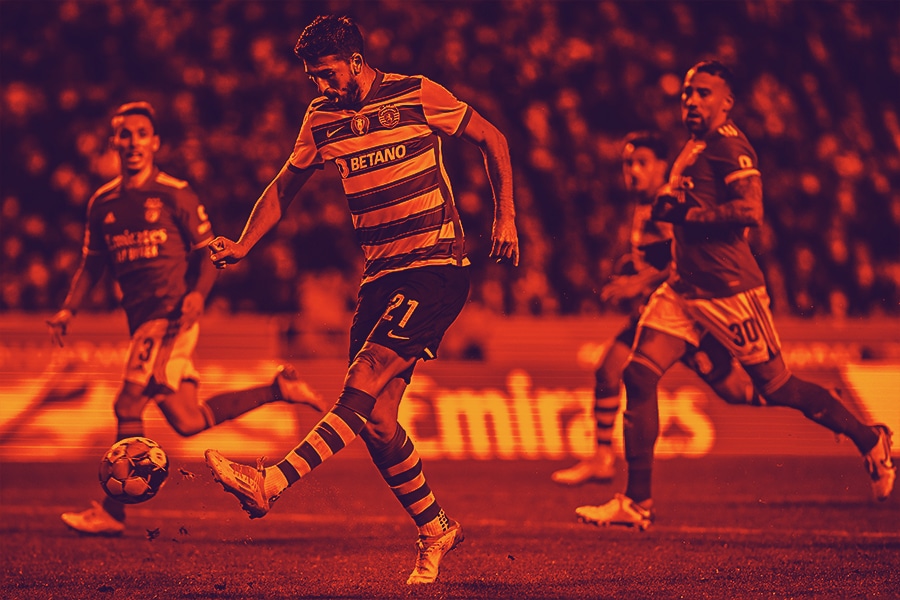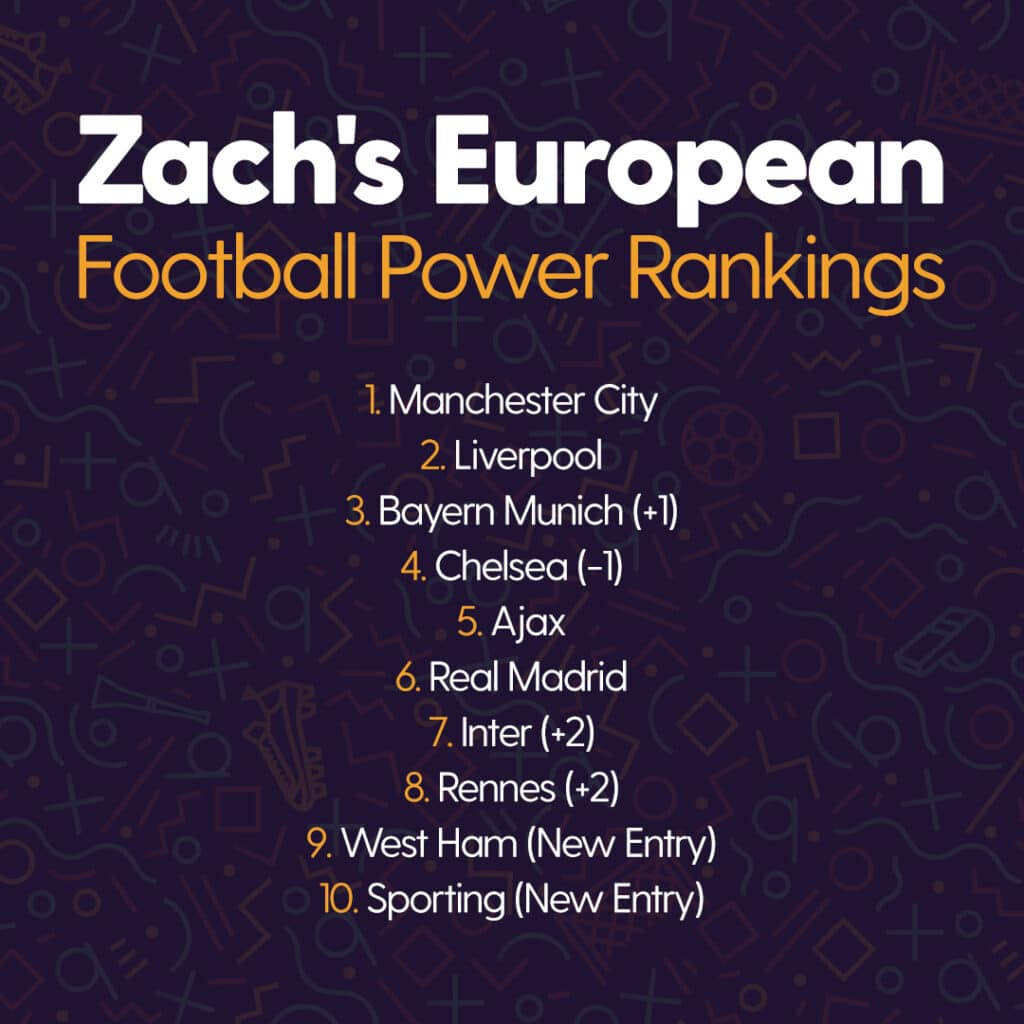
“I was not yet born the last time Sporting won here 3-0 or with a greater margin of goals.”
Those were the words of Jorge Jesus on October 25, 2015, after his Sporting side thrashed Benfica at the Estadio da Luz in a 3-0 victory that saw Teofilo Gutierrez, Islam Slimani and Bryan Ruiz score goals, whilst Joao Mario and William Carvalho ran the show in midfield. Whilst Joao was on the winning side of that Derby de Lisboa, Andre Almeida and Pizzi, both of whom played in Friday’s derby, were on the losing end. Ruben Amorim, on the other hand, was wrapping up his career at Qatari side Al-Makhrah, before eventually retiring in April 2017 after more than a year of inactivity.
Jorge Jesus
Led by a 32-goal haul from Brazilian forward Jonas, Rui Vitoria’s Benfica narrowly edged Sporting to a league title by two points whilst also winning the Taça da Liga and advancing to the UEFA Champions League quarterfinals. Jorge Jesus, who had left Benfica for Sporting the previous summer following a successful nine-year spell, picked up just two pieces of silverware, the Supertaça Cândido de Oliveira and the Taça da Liga before departing in 2018. A brief spell at Al-Hilal followed, and in June 2019, Jesus headed to his third different continent in a year by taking charge of Flamengo.
Despite the initial scepticism that Jesus was too old and stubborn to adapt to Brazilian football, the Portuguese manager delivered a near-perfect year in charge of the Rubro-Negro, winning 43 out of 57 games including the Copa Libertadores Final, as ex Benfica flop Gabriel Barbosa scored a late brace to lead Flamengo to a comeback victory against River Plate in Lima, Peru. Within 24 hours of winning the Libertadores, Jesus became the first foreign manager in 60 years to win the Brazilian championship; in total, he picked up five pieces of silverware during his time in Rio de Janeiro and narrowly lost the 2019 FIFA Club World Cup Final to Liverpool. Rather than continuing his South American adventure, Jesus elected to head back to Portugal in July 2020 and return to Benfica just five years after leaving the club. His appointment was followed by an unprecedented spending spree that saw the likes of Darwin Nunez, Luca Waldschmidt, Everton Cebolinha and more arrive at the Estadio da Luz. Whilst Porto and Sporting tightened their belts in the wake of the COVID-19 pandemic, Benfica geared up to reestablish their domestic dominance after a spell that had seen Sergio Conceicao’s Porto win two of the last three league titles.
Benfica’s Financial Problems
The result? Benfica crashed out of the UEFA Champions League at the qualifier stage, with Andrija Zivkovic, who had been released from Benfica just days prior, scoring the decisive goal for PAOK to send the Aguias packing, deprive them of a massive cash supply, and in turn, force them to sell Ruben Dias to Manchester City. It proved to be a disaster of a season that saw Benfica finish trophyless and place third in the league table, a whopping nine points behind crosstown rivals Sporting who claimed their first league title in 19 years under rookie manager Ruben Amorim.
Whilst Benfica ended up selling Pedrinho, Waldschmidt and other fringe players to help balance the books, they managed to hang onto each of their starters in a summer that saw president Luis Filipe Vieira resign after being detained as part of an investigation for money laundering and tax fraud. What’s more, they added Roman Yaremchuk, Nemanja Radonjic, and Rodrigo Pinho to beef up their attack, whilst Gil Dias, Valentino Lazaro, and Soualiho Meite also arrived. Sporting, on the other hand, looked set to keep hold of the bulk of their championship XI but were forced to cash in on Nuno Mendes on the final day of the transfer window, with the teenager joining Paris Saint-Germain on a season-long loan with an option to buy for €40 million. The deal also saw Spanish international Pablo Sarabia join Sporting on loan for the 2021/22 season with PSG paying the entirety of his wages, with Ruben Vinagre and Ricardo Esgaio being brought in to provide depth in the wingback positions and to help Sporting brace for Mendes’ impending departure.
Joao Mario
Apart from Mendes, the sole member of Sporting’s championship-winning XI that was not retained was Joao Mario. Having joined Sporting’s academy in 2004, Joao Mario became a key player in midfield under Jorge Jesus and eventually earned a €40 million move to Inter Milan in 2016 on the back of an impressive Euros for Portugal. However, after struggling for minutes under manager Luciano Spalletti, Joao Mario headed on loan to West Ham and Lokomotiv Moscow before returning to Sporting in 2020/21, where he would play a crucial role in Ruben Amorim’s double pivot alongside Joao Palhinha.
It seemed a foregone conclusion that Sporting would seek to make his loan permanent, but instead, Sporting’s low-ball offer of €3 million and €2 million left him disillusioned. Benfica swept in and signed him on a five-year contract, reuniting him with Jorge Jesus in a deal that will see the 28-year-old take home an annual salary of €2 million; on the other hand, Palhinha and Matheus Nunes, Sporting’s starting double-pivot this season, earn a combined €1 million per season. Rather than investing big in a veteran leader, Sporting elected to trust in Matheus Nunes (23), Daniel Braganca (22) and Manuel Ugarte (20), who joined from Famalicao for an initial fee of €6.5 million rising to €16.5 million with add-ons.
Benfica & Sporting
Benfica enjoyed a perfect start to the season that saw them defeat Spartak Moscow and PSV Eindhoven to book a place in the UEFA Champions League group stage, win their first seven league matches, and thrash Barcelona 3-0 at the Estadio da Luz. However, their form would fall off a cliff in October, as Portimonense snatched a backs-to-the-wall victory at the Luz to open the month. Draws against Estoril and Vitoria de Guimaraes followed, in addition to two humiliating losses to Bayern Munich, whilst their only October wins would come in the form of extra-time winners against third-tier Trofense and newly promoted Vizela. Nevertheless, a 6-1 victory against Braga, a 4-1 win in the cup against Pacos de Ferreira, and a controversial 7-0 win against 9-men Belenenses-SAD would have surely given Benfica plenty of confidence heading into Friday’s derby.
Sporting, on the other hand, began the season with four consecutive wins but hit a snag with a 1-1 draw against Famalicao, before repeating the same result against Porto. The rest of September saw Sporting suffer a humiliating 5-1 defeat at home to Ajax, followed by two narrow victories against Estoril and Maritimo and a 0-1 defeat against Borussia Dortmund. It would have seemed that the Lions were set for a reality check.
Instead, Ruben Amorim’s men have taken 12 consecutive victories since that loss against Dortmund, and whilst Benfica will need to beat Dynamo Kyiv and hope that Bayern Munich defeat Barcelona, Sporting have already booked their ticket for the UEFA Champions League Round of 16 with one game to spare. Still, the circumstances leading up to the Derby de Lisboa were anything but favourable for Sporting. Joao Palhinha, the defensive midfield linchpin who has emerged as one of the finest ball-winners in Europe under Amorim’s watch, picked up a muscular injury in last weekend’s match against Tondela which will sideline him for a month. If that wasn’t bad enough, Uruguayan captain and defensive leader Sebastian Coates contracted COVID-19 and was absent for the derby.
Derby de Lisboa
With Porto defeating Portimonense earlier in the day, Sporting needed a victory to stay level on points with the Dragoes, whilst Benfica needed three points in order to leapfrog their crosstown rivals. The visitors took the lead in the eighth minute as Pedro Porro raced down the right flank and found Pedro Goncalves, whose spectacular pass fell perfectly into the path of Pablo Sarabia who volleyed it home.
Whereas Benfica went with an individual man-marking scheme, Amorim entrusted Pedro Goncalves or ‘Pote’ and Sarabia with putting pressure on Benfica’s three central defenders, whilst Paulinho was responsible for blocking the passing lane towards Julian Weigl and Joao Mario in the centre of the pitch. Paulinho has often been criticized for his lack of end-product since joining from Braga in January for a club-record fee, but not only did he play a vital role in the team’s attacking play against Benfica, but he was constantly willing to get stuck in and win the ball back to kickstart counters.
In the centre of the pitch, it was Ugarte, the man who was signed to replace Joao Mario, and Matheus Nunes, the man who took advantage of Joao Mario’s exit to earn a starting spot. The Uruguayan delivered a superb performance in Palhinha’s absence, completing eight defensive actions in Benfica’s half and registering four tackles and five interceptions, but Matheus Nunes delivered a box-to-box midfield masterclass. The Brazilian-born Portugal international’s combination of speed, physicality, and change of direction proved crucial in an open, end-to-end game, and whilst he has struggled against deep blocks this season, he seized the opportunity and delivered on the biggest stage. Nunes escaped the pressure and charged forward to exploit open space, helped out on the defensive end, never shied away from physical battles and was a constant menace for Benfica.
Credit must also be given to the back three of Goncalo Inacio, Zouhair Feddal and Luis Neto and the wingback duo of Pedro Porro and Matheus Reis who proved that, even without two defensive linchpins like Coates and Palhinha, they can still hold their own defensively. Benfica did come close to equalizing shortly after when Antonio Adan was forced to punch clear a header from Alex Grimaldo, but Sporting, who sought to shut down space in between the lines and hit on the counter, had the bulk of the clear-cut opportunities. After Pote’s effort bounced off the crossbar, the Lions came close again to doubling their lead as Matheus Reis’ cross fell to Sarabia who deflected the ball towards Paulinho, who hit a well-taken half-volley into the back of the net. Whilst it was later ruled out due to offsides, it was clear as day that the visitors were heading into the break with all of the momentum.
Jorge Jesus attempted to change things around at halftime by taking off right wingback Valentino Lazaro for centre forward Roman Yaremchuk, whilst Amorim later decided to take off Feddal for Ricardo Esgaio. Benfica came close to equalizing as Darwin Nunez connected on a corner from Joao Mario, but his header rattled off the crossbar. The Uruguayan forward nearly inspired an equalizer again by shaking free of his marker and firing a cross towards Joao Mario, whose tepid shot was collected by Adan. Within seconds, Matheus Nunes had picked up the ball around the halfway line, sprinted forward and evaded a lunging tackle from Everton Cebolinha, before cutting through Benfica’s defence like a knife through butter and sliding a pass towards Paulinho who gracefully flicked the second goal past Odysseas Vlachodimos. The victory was sealed minutes later as Esgaio played a long ball out from the back towards the onrushing Matheus Nunes, who flicked the ball over Andre Almeida and found himself in a 1v1 with Vlachodimos, before calmly slotting into the left side of the net. Whilst Pizzi was able to come off the bench and score a consolation goal in the 96th minute, it was a case of too little too late for Benfica, who fell four points behind Porto and Sporting.
Jesus’ Second Spell
Benfica spent the bulk of last season fending off competition from Braga for third place rather than challenging for the title, and after falling four points behind Porto and Sporting, they run the risk of sitting back and watching their eternal rivals fight it out in a two-horse race. Porto can book their ticket for the Round of 16 with a win against Atletico Madrid at the Estadio do Dragao, whilst Benfica will not only need to beat Dynamo Kyiv, who are guaranteed to finish bottom of the group, but hope that Bayern Munich defeat lowly Barcelona. Failure to do so could see Jorge Jesus given the boot with six months remaining on his contract.
As the saying goes, the sequel is never as good as the original, and that has proven to be the case with Jorge Jesus’ homecoming to the Estadio da Luz. Despite a total investment upwards of €130 million, the 67-year-old manager has struggled at Benfica with 48 victories, 17 draws, 13 defeats, and perhaps most damningly, zero trophies. Against Porto and Sporting, Benfica have taken one win, two draws and three defeats in Jesus’ second spell – that sole victory came when Sporting had already sealed the league title. After the referee blew the whistle on Benfica’s humiliating home defeat to their crosstown rivals, Benfica supporters began to boo and wave white handkerchiefs – customary for demanding the resignation of a manager. Some even took off their masks and waved it around to voice their displeasure.
Whilst Jesus has been unable to replicate his magic in his second spell at Benfica, his unprecedented feats in Brazil have left Flamengo supporters yearning for his return. After Jesus’ departure, Domènec Torrent, Pep Guardiola’s former assistant, took charge of the club but lasted just three months before being given the boot. Rogério Ceni took over and managed to lead Flamengo to their second straight championship, but eight months after his appointment, he too found himself out of a job. Renato Gaúcho took the reins in July, but after losing in the Copa Libertadores Final to Palmeiras on November 27, he was given the boot as well.
After the do-or-die fixture against Dynamo Kyiv, Benfica will face Porto twice in the month of December in addition to matches against Famalicao, Covilha and Maritimo. Failure to beat Dynamo Kyiv could see the Portuguese veteran headed for an early dismissal and another homecoming – this time to Rio de Janeiro – but only time will tell if Jesus can mastermind another miracle to hang onto his job until the end of the season.























